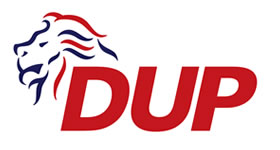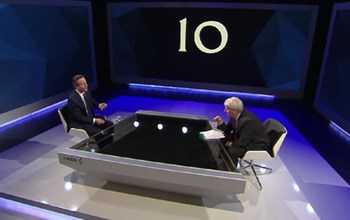Please note this website was created for the 2015 General Election. Due to the lack of preparation time, we have not updated this website for the 2017 Election. Why?

Start a 'buy local' campaign, including legislation to improve public procurement, as well as improving opportunities for Welsh based business within the procurement chain to create 50,000 new jobs.
A Business bank for Wales to support SMEs and with promotion of the Welsh economy as a priority
Support new infrastructure projects which create jobs now and increase connectivity, such as the Valleys Metro, and special purpose investment vehicles such as Build 4 Wales.
Promote co-operative and mutual forms of business, including social enterprises, to develop and improve business and entrepreneurial skills in our communities.
Plaid Cymru would extend the Business Rate support scheme we established during our time in Government to cover all businesses with a rateable value of £15,000 or less. The scheme would cover 80,000 businesses across Wales and would relieve 70,000 businesses of having to pay business rates at all.
Businesses with a rateable value of up to 10,000 would receive 100% relief from business rates with tapered relief for businesses between £10,000 and £15,000.
Source: Plaid Cymru party website, existing manifesto or officially-published policies.

We believe that crime and justice policy should be decided here in Wales, so that we can set our priorities for keeping our streets safe.
Plaid Cymru calls for a Justice (Devolution of Powers Wales) Bill. We will continue to campaign for Welsh control over our crime and justice system in its entirety, including policing and youth justice, so that Wales can fully tackle the complex problems of individual and community safety and rehabilitation.
We call for the building of juvenile and women's prisons and we fully support a prison in the north of Wales. We are also committed to the campaign for bilingual juries in Wales and a separate legal jurisdiction for Wales.
We believe that crime is committed for a wide number of interlocking reasons and so can only be dealt with through a full range of policies for the economy, education, social justice and the regeneration of communities.
We call for a National Community Safety Strategy for Wales, more drug rehabilitation places and programmes, drugs and alcohol education in every school in Wales and better amenities for young people in their communities.
We also want to see the introduction of stricter controls on how drinks are advertised and marketed, greater support for victims and witnesses to help people feel safer in their communities and a political commitment to restorative justice and community sentencing where appropriate.
Plaid Cymru has noted the disproportionate number of ex-service personnel in prison and has called for a strategic review of the ways in which welfare support is administered to veterans.
Source: Plaid Cymru party website, existing manifesto or officially-published policies.

Plaid Cymru did not support the war in Iraq; in fact, we vociferously opposed it. Moreover, our MPs led the campaign to impeach Tony Blair for war crimes.
We also opposed the invasion of Afghanistan from the beginning and we now call for a move towards a situation in the country where Afghans can be safe to develop their own country without external political influence. Plaid Cymru therefore call for a sufficient humanitarian framework following the gradual withdrawal of troops.
We do, of course, believe that while they are there, the young men and women in the armed forces should be protected and cared for, so we have called for a Military Well-Being Act to promote and safeguard the physical and mental health and wellbeing of military personnel.
Source: Plaid Cymru party website, existing manifesto or officially-published policies.

Plaid Cymru propose a new Green Skills Construction College that would specialise in green energy.
The party would establish a publicly-owned energy company.
A Plaid Cymru government would rebuild our economy around our strengths and create an environment in which the private sector can flourish. Rather than hand out individual support packages to individual businesses, we would make Wales an attractive place to do business through creating a skilled workforce specialising in high value sectors, investing in our internal and external infrastructure and making finance more accessible.
Plaid Cymru has called for a new arm�s length, publically-owned Bank of Wales business investment bank. The bank would make finance available to small businesses at competitive rates, encouraging existing businesses to invest in themselves, potentially boosting employment and encouraging new business startups.
Plaid believes that we should abolish the unfair and outdated council tax system and introduce a local income tax. A local income tax would be based on the ability to pay, not on the value of property. It would be fairer and more efficient.
Source: Plaid Cymru party website, existing manifesto or officially-published policies.

A single national curriculum will provide for core learning whilst enabling greater flexibility for schools and professionals to innovate, e.g. outdoor learning, third foreign language, Information Technology.
We will respect the professionalism of teachers and assistants, expect Continuous Professional Development and reward good practice with less bureaucracy
Examinations should be independently regulated, including a reduction in the confusing range that pupils are allowed to sit.
There should be a closer alignment between under-graduate and vocational skills, especially at the higher level.
We call for a study into the feasibility of providing every infant school child in Wales with free school meals as there is a clear link between poor diet and educational attainment.
We will continue to oppose foundation schools, academies and free schools, which lack public accountability and in many cases have poor staffing practices, including lack of union recognition and weaker conditions of service for staff, as well as introducing the private sector into our education system.
We strongly believe that every child in Wales has the right to education in the Welsh language, including pupils with Special Educational Needs and we will continue to push for strengthened targets.
We support the recommendations made in the review of qualifications for 14-19 year olds to retain GCSEs and A Levels and to develop and enhance the Welsh Baccalaureate as a framework for learning for this age group.
We will call for the Welsh government to look at moving from a per-pupil funding mechanism to a funding model based on the catchment area. It is crucial that education authorities have sufficient resources to provide Welsh medium education and adequate services for children with special educational needs.
The Party of Wales will not support any further increases in tuition fees for our higher education students, and will seek the abolition of tuition fees as and when public finances allow.
Source: Plaid Cymru party website, existing manifesto or officially-published policies.

The National Assembly has agreed, with cross-party support, to reduce emissions by 40% below 1990 levels by 2020. Plaid will work to ensure that this decision is turned into meaningful and effective action to achieve the full reduction.
Plaid Cymru demands the full devolution of all powers over energy policy to the National Assembly.
Wales must take full advantage of our renewable energy resources and support micro generation and other small-scale sustainable power generation schemes, including tidal, wave-power, on-shore and off-shore wind, hydro and biomass.
Our preferred option for harnessing the energy of the Severn is a combination of lagoons and tidal-stream turbines which would minimise environmental damage while maximising zero-carbon electricity generation at a cost affordable to consumers.
We call for emission performance standards for all new power stations and we reaffirm our opposition to the construction of any new nuclear power stations in Wales.
Plaid in Westminster will continue to campaign for a windfall tax on energy companies to help pay for grants for insulation for lower income families.
We will continue to oppose the use of waste incinerators and support binding targets for waste prevention. We support recycling targets of 80% of domestic waste by 2020 and the introduction of a higher landfill tax.
Source: Plaid Cymru party website, existing manifesto or officially-published policies.

We are committed to an independent Wales as a full member of the European Union.
We will continue to support further democratic reform of the EU.
We are committed to increased representation for Wales in the EU. This includes a fair number of MEPs for Wales, a European Parliament office in Wales, a rotating European Commissioner and most importantly, a vote for Wales in the Council of Ministers.
Plaid will continue to fight for transitional European financial support to continue after 2013.
We support further enlargement of the EU provided that those countries that wish to join improve conditions of democracy, justice and the rule of law. We support ongoing membership negotiations with Turkey as a means to encourage democratic reform in that country, improve women's rights and promote the democratic interests of the Kurdish people.
Source: Plaid Cymru party website, existing manifesto or officially-published policies.

Plaid Cymru has three policy options for childcare: 1) Free optional full-time Foundation Phase place for all three and four year olds, 2) Top-up the existing ten hours Foundation Phase place offered to three and four year olds with twenty hours free childcare, and 3) Ten hours free childcare for three year olds on top of the existing ten hour Foundation Phase place and twenty hours free childcare for two year olds.
Source: Plaid Cymru party website, existing manifesto or officially-published policies.

We oppose the micro management of local councils by central government and are committed to ensuring that local councils have the freedom and funding to respond appropriately to local issues.
In the long term, Plaid would create an All-Wales Civil Service, with civil servants and officers able to move freely between the National Assembly for Wales, Local Government in Wales and The National Health Service in Wales. We believe that this model will encourage cooperation, the sharing of best practice, and will result in more joined-up thinking.
We will make sure that voluntary groups, local businesses and individuals have every opportunity to share their views on decisions impacting their local community. We will support the campaign for participatory budgeting in our local authorities to ensure that local citizens have a voice in how money is spent.
Plaid is committed to a fairer voting system and will continue to campaign for the introduction of the Single Transferable Vote for every election in Wales including local authority elections. We will also continue to call for the right to vote at 16 as a way of encouraging young people to take part in the political process.
Source: Plaid Cymru party website, existing manifesto or officially-published policies.

Plaid Cymru wants to train, retain and recruit a well-motivated, caring and expert NHS and social care workforce. We want to increase our capacity to train the future medical workforce and we will incentivise training in hard-to-recruit areas and specialisms.
We want to see the Welsh NHS participate in more clinical trials and research. We want to see improved availability of diagnostics for cancers and chronic conditions. We want to see a medical service that is judged on its outcomes for people, not on inputs.
Where individuals have developed substance addictions, then we want to provide a service to enable people to conquer their addiction.
Source: Plaid Cymru party website, existing manifesto or officially-published policies.

The next Plaid Cymru government would introduce several schemes designed to help young people in Wales get onto the housing ladder.
We would change planning laws to ensure that local people benefited from housing developments, and that young people were no longer forced to move away from their communities due to second home owners pushing up prices and lack of high wage employment in many parts of Wales.
We will reform the way in which social housing is allocated to stop abuses in the system and ensure fairness.
We will improve the quality of housing in the private rented sector through better regulation and tenancy reform that ensures both landlords and tenants are aware of their rights and responsibilities.
We will invest in the retro-fitting of older homes to ensure that families keep their fuel bills low and stimulate the local economy.
Plaid Cymru also believes that VAT for home repairs should be cut to 5% - people should not be paying excessive tax simply to ensure their home is a healthy and safe place to live.
Empty Properties are also an issue we want to tackle. We will extend the empty properties scheme to ensure more derelict and empty homes are brought back into use, and no longer will communities have to deal with the crime and anti-social behaviour that can accompany such housing.
Source: Plaid Cymru party website, existing manifesto or officially-published policies.

Plaid Cymru recognises the invaluable contribution that migrants have made to Wales. Our civic nationalism celebrates tolerance, mutual understanding and difference. Equally, we recognise the potential shared benefits of greater co-operation in asylum and immigration at EU level, and the important role that Europe could play in assisting the integration of new migrants including in the languages of the stateless nations.
We condemn the point-scoring used by other parties and the pandering to unfounded xenophobic prejudices in the debate on immigration.
We oppose a points-based system, which we know would take no account of the skills requirements in different parts of Wales.
Plaid Cymru also supports the right of asylum seekers to work in Wales while they wait for status decisions to be made and we call for the speeding up of the unnecessarily complicated asylum system.
We condemn the practice of housing recently-arrived asylum seekers, especially children, in "detention" or "removal" centres as punitive and cruel, and we will continue to lobby the Westminster government to ensure that they keep their promise to shut these centres.
Source: Plaid Cymru party website, existing manifesto or officially-published policies.

We now have major plans for the future of public transport in Wales. We recognise that the rail network will never help us to achieve our environmental objectives unless it is both cheap and attractive to use, and that will not happen without significant and ongoing commitment of public funds.
We reiterate our call for the railway system to be brought back into public ownership. While we will pursue this objective, we will also pursue other socially useful options such as not-for-dividend or co-operative rail services, and greater devolution of rail infrastructure powers and responsibilities to Wales.
Plaid Cymru also supports providing alternatives to the car. Walking and cycling, particularly in urban centres, needs to be protected in legislation, and the right infrastructure provided in terms of routes, signage, and information.
Rural areas also need the right transport solutions, including demand-led bus services and the ongoing expansion of the Traws Cymru bus network, which aims to compensate for the disastrous Beeching rail cuts inflicted on Wales in the past.
To function as an economy and be recognised internationally, Wales needs an international airport of its own, as well as connections to hubs in neighbouring countries. Plaid Cymru suggested the idea of taking Cardiff Airport into public ownership, in order to prevent it from closing down.
We would look to use more of the annual Welsh Government budget to make rail fares more affordable, viewing this not as additional subsidy but as investment that also would benefit road users and the environment.
We will continue to campaign on the issue of �Barnettising� HS2 and in favour of spreading rail investment across the state, as part of a wider rebalancing of the United Kingdom and a state-level economic policy for the nations and regions.
Plaid Cymru is committed to maintaining the concessionary fares scheme which is a lifeline for many of our older citizens and accounts for over 40% of all local bus journeys.
Plaid Cymru is of the view that the case for a new M4 motorway is not sustainable or affordable.
Our proposal on the Severn Tolls is for ownership to transfer to the Welsh Government, and a reduction in tolls to cover maintenance levels only.
Plaid Cymru supports increasing the number of 20mph zones, especially around schools, but in whichever neighbourhoods where there is local demand.
We support the devolution of speed limits. Plaid Cymru does not see the case for changing the existing motorway speed limit, but notes that the UK Government has considered increasing the motorway speed limit for England and Wales.
Source: Plaid Cymru party website, existing manifesto or officially-published policies.

Plaid Cymru is opposed to the welfare reform which links benefit payments to work and threatens benefit sanctions for those unable to meet unfair and unrealistic government demands. Plaid believes that this will simply result in a vicious cycle of people who live between in-work and out-of-work poverty.
Plaid Cymru in government will make the abolition of child poverty a top priority. We will press for a move away from complex and expensive means testing for child-related benefits.
Because legislation on pensions is not devolved, Plaid will instead continue to campaign for the introduction of a living pension during the period of the next parliament for those aged 80 and over. In the longer term, when the state of the public finances allows, we would lower the qualifying age.
Source: Plaid Cymru party website, existing manifesto or officially-published policies.

Plaid Cymru would enforce a living wage for all.
Create apprenticeships and job opportunities by investing in training and working with both large and SME businesses and training providers to ensure that young people have market-ready skills.
Tackle under-employment by supporting people into work, supporting higher value jobs, flexible working patterns and childcare assistance.
Plaid calls for stringent implementation of labour laws for all workers, including enforcement of a living wage to address the injustice of poor pay and unfair working conditions.
Source: Plaid Cymru party website, existing manifesto or officially-published policies.

Plaid will press the UK government to honour the commitment to delivering 0.7% of GDP as international aid and we will continue to campaign for the cancellation of developing countries' unaffordable debts.
We also reaffirm our support for the international Fair Trade movement. We will continue to campaign for the rights of minority nations and minority language speakers in Europe and in future possible accession countries such as Turkey.
We support a global tax on financial transactions as a means of encouraging more responsibility and stability in the global markets.
We support urgent and far-reaching reforms of the World Bank and IMF in order to improve regulation and accountability.
Source: Plaid Cymru party website, existing manifesto or officially-published policies.

We favour having available to us the power to reduce the rate of corporation tax in the Province, subject to the precise terms not placing an intolerable burden on our budget. This would assist in improving our productivity compared with the rest of the United Kingdom especially the South East of England and being competitive.
Our goal is not be as competitive as the Irish Republic, but to be more competitive, so we would work towards a 10% rate.
In order to rebalance the Northern Ireland economy and promote the private sector, DUP Ministers will:
Support the creation of over 20,000 new jobs.
Strive to make Northern Ireland the best place in the UK to do business.
Seek to increase exports by 50% over the next decade by supporting first-time exporters and assisting companies to diversify into new markets.
Seek in the short-term to maximise job creation by actions such as providing financial support for start-ups and grant assistance in the agri-food sector, targeting knowledge processing and contact centre FDI, boosting funding and procurement opportunities for social enterprises and extending the Propel programme for export starts
Target over the course of the Assembly term more jobs in ICT, agri-food, financial services, health technology, tradable services, clean technology, business services, retail, tourism and construction.
Aim to expand aerospace, pharmaceuticals, medical devices and other high value advanced manufacturing.
Extend and improve the small business rates relief scheme.
Seek to build Northern Ireland's reputation internationally as a centre for creative industries.
Pursue banks to provide working capital and funds for growth to local businesses, demanding regular figures updating the levels of business lending including both renewals of facilities and new lending.
Source: Democratic Unionist party website, existing manifesto or officially-published policies.

The DUP would seek to:
Require a comprehensive review of sentencing policy to ensure it is effective in deterring crime, protecting the public and cutting reoffending.
The DUP will bring forward legislation for tougher sentences and make prison terms the norm for those who attack the elderly and vulnerable.
Seek to increase sentences for child sex offences, rape and sexual assault.
Establish a Victims' Charter placing victims at the heart of the justice process and ensuring proper communication and consultation from the PSNI and Public Prosecution Service with explanations for delays and failure to prosecute- reasons would have to be given for decisions to prosecute on lesser charges.
Extend to Northern Ireland the Sarah's Law provisions being practiced in England, allowing concerned parents to request whether individuals in contact with their child about whom they would have concerns, are on the Sex Offenders Register.
Prisoners should not be treated more favourably than law abiding citizens.
Amend self-defence legislation so householders are given greater protection and can only be prosecuted for use of force against intruders which is found to be disproportionate.
Produce a strategy to deal more effectively with white collar crime, ensuring that those who misappropriate or embezzle funds are properly pursued.
Introduce a website based on the CrimeMapper model across the water, so the public have accurate information about the level of crime in their neighbourhood.
Support use of wire tap evidence in court.
Establish a new police and fire service training centre.
Increase the proportion of time police officers spend on operational duties to levels comparable with the rest of the United Kingdom.
Limit the use of police speed cameras to accident blackspots.
Plans to introduce ID cards should be scrapped. They are too expensive and will not tackle terrorism or illegal immigration.
Source: Democratic Unionist party website, existing manifesto or officially-published policies.

Source: Democratic Unionist party website, existing manifesto or officially-published policies.

We favour having available to us the power to reduce the rate of corporation tax in the Province, subject to the precise terms not placing an intolerable burden on our budget. This would assist in improving our productivity compared with the rest of the United Kingdom especially the South East of England and being competitive.
Our goal is not be as competitive as the Irish Republic, but to be more competitive, so we would work towards a 10% rate.
Assist the social economy through increased start-up packages, training and support with business plans and hosting an international conference on social enterprise.
Amend credit union legislation and promote microfinance initiatives.
Maintain the 30% cap on manufacturing rates.
Extend and improve the small business rates relief scheme.
Maximise the amount of revenue spend which can be transferred to capital for investment.
Double tourism revenue to £1 billion over the next decade.
Maximise benefits from the significant capital investment in tourism, particularly in 2012 with the Titanic and Ulster Covenant anniversaries and the opening of a new Giant's Causeway Visitor Centre, and Londonderry's Year as the UK's City of Culture in 2013.
Source: Democratic Unionist party website, existing manifesto or officially-published policies.

The DUP will increase investment in the early years, produce a roadmap for a single education system, continue to safeguard academic selection and ensure no-one is priced out of attending university.
Produce a comprehensive long-term plan for the education sector including a roadmap to create a single education system.
Introduce an Individual Education Plan for every pupil based on a simplified Pupil Profile.
Legislate to implement a Special Educational Needs strategy after overhaul of the outgoing Minister's proposals.
Review the Revised Curriculum with a view to giving principals and teachers more freedom to adapt their offering to suit the pupils' particular circumstances.
Assist unemployed teachers to take training modules permitting them to attain experience in the preschool sector or similarly in reading recovery schemes until they obtain a teaching post.
Rationalise immediately the five Education Boards into one, followed quickly by a single body subsuming the functions, assets and liabilities of Education Boards, the Council for Catholic Maintained Schools, Staff Commission and Youth Council.
Continue to oppose any rise in student fees beyond the routine year-on-year inflationary uplifts.
Seek to have the cap on student numbers in Northern Ireland removed.
Source: Democratic Unionist party website, existing manifesto or officially-published policies.

Aim to secure 40% of our energy consumption from renewable sources by 2020, assisting small scale renewable energy generation, ensuring simplified processes to secure approval for renewable projects, publishing a Northern Ireland Offshore Renewable Energy Strategy and seeking to establish the Province as a renewable manufacturing hub
Make our fair share of reductions in greenhouse gases, cutting emissions by 25% below 1990 levels by 2025.
Continue progress towards making the government estate carbon neutral.
Promote renewable heat working towards 10% of heat consumed coming from renewable sources by 2020.
Commence a Province-wide retrofit programme providing a range of energy efficiency measures, reducing carbon emissions and reducing our reliance on fossil fuels.
Take advantage of the economic opportunities offered by a low carbon economy.
Support Research and Development in renewable and low carbon technologies.
Source: Democratic Unionist party website, existing manifesto or officially-published policies.

From the DUP Westminster Manifesto 2010:
The DUP opposes the UK entering the Euro zone. Giving up our national currency would mean surrendering a vital tool for running the British economy and an unacceptable loss of independence.
We also believe that the United Kingdom Government must do much more to oppose the continual power-grab exercised by the European Commission. We support the localisation of the Common Fisheries Policy which would see fishing policy controlled at a national or local level within the UK.
We believe that the UN target of spending 0.7% of Gross National Income on international aid by 2013 is a target which should be met. It is important however that this money is seen to be delivering the maximum possible benefits for those who are in most need. We believe there must be measurable targets put in place to ensure that aid is being put to the best and most efficient use.
It is important that UK interests are protected within the world and the DUP fully supports the rights of the Falkland Islands to self-determination.
Source: Democratic Unionist party website, existing manifesto or officially-published policies.

Work to keep household bills at a minimum, ensuring that Northern Ireland continues to have the lowest bills anywhere in the UK.
The DUP will block additional water charges, limit any regional rate increase to inflation and cap district rates.
Explore the potential to create a website called FixOurStreetNI for residents to report problems with streetlights, drainage,waste collection, road maintenance, etc.
One poorly maintained property can drag an entire estate or area down so we will explore means for agencies to carry out any necessary work and be compensated retrospectively when individuals persistently fail to maintain acceptable standards.
Require car parks accessed by the public to have family parking spaces.
Conduct an inquiry into insurance costs- including car, contents and buildings insurance- in the Province compared with Great Britain, covering local insurance industry practice and the role of the legal sector.
Drive down fuel poverty in the short term to a level comparable with the rest of the United Kingdom.
Further roll out broadband connectivity throughout Northern Ireland and increase e-business activity.
Work towards ensuring affordable childcare Province-wide from 8am to 6pm from Monday to Friday.
Make greater use of the schools estate for childcare aiming for schools to be able to use childcare tax credits, and ensuring varied use of time including breakfast clubs,homework clubs, sport and vocational and skills training.
Source: Democratic Unionist party website, existing manifesto or officially-published policies.

Cut the size of government, with Departments providing the policy and strategy framework within which services are delivered
.The DUP will work with other parties to create a settled society in Northern Ireland, realising savings through sharing and breaking down division.
We will continue to make Stormont better by delivering much needed reforms, working to reduce the number of MLAs and Government Departments.
The DUP will work to end division and bring unionists together to maximise unionism's strength and influence. We will seek to create a shared and united community in Northern Ireland where everyone has been the opportunity to succeed, ensuring the long-term Union between Great Britain and Northern Ireland.
Consult on outlawing election posters or limiting their use in terms of numbers, distance from polling stations, commencement date, etc.
Press ahead rapidly with the reconfiguration of local government and transferring of extra powers from central Departments.
Amalgamate the Human Rights Commission, Equality Commission and the Office of the Children's Commissioner.
Source: Democratic Unionist party website, existing manifesto or officially-published policies.

The DUP will increase spending on health in real terms, ensure that resources are targeted on the front line through greater efficiency and productivity and expand cancer services.
We will prioritise preventative measures to improve public health.
Slash the excessive per capita spending on Departmental and administrative costs to the levels in the rest of the UK.
Reconfigure provision to shift the 25-30% of care currently carried out inappropriately in hospitals, into the community- patients must be treated in the right place at the right time by the right people, not over-relying on the most specialised and expensive services.
Have 80% of domiciliary care provided by charities and other nonstatutory organisations by 2015, releasing savings extending to tens of millions of pounds per year.
Allocate to public health an increasing percentage of the overall health budget with a view to increasing spend on health promotion and disease prevention beyond £100 million, to more than two and a half times the 2007 figure.
Increase investment in intermediate care and rehabilitation to treat more patients with chronic illnesses at home rather than requiring hospital admission.
Carry out at least one hundred more cardiac operations per year in Northern Ireland making savings from sending less patients to Dublin or Great Britain.
Explore means including fixed penalty notices to reduce drunkenness and violence in Accident and Emergency departments and throughout the health care system.
Oppose extension of the 1967 Abortion Act to Northern Ireland.
Explore the potential for Northern Ireland to be included in the NHS Choices website which has provided a better service and saved close to £50 million in England.
Support measures to reduce alcohol consumption including an end to promotions such as �happy hours', banning the sale of alcohol below cost price and ensuring any introduction of minimum pricing is targeted at an appropriate level to impact on binge drinkers.
Encourage fast food outlets, restaurants, sandwich chains, cafes, public houses and company canteens to display calorie counts on menus.
Source: Democratic Unionist party website, existing manifesto or officially-published policies.

A DUP Social Development Minister would seek to:
Produce a comprehensive Homes and Communities strategy for Northern Ireland, agreed with the housing sector.
Assist first time buyers including through a graduate home loan scheme for those with degrees in subjects crucial to improving our economy such as STEM, finance and business.
Promote shared ownership schemes and provide tenants with greater opportunity to own or part-own their home, including greater flexibility in the proportion stake required for co-ownership.
Explore how funding to assist the Co-Ownership scheme could be increased as well as the establishment of a government backed loan scheme for first time buyers.
Place an increased focus on the housing needs of the vulnerable including the elderly and disabled, ensuring processes are more sympathetic to their particular needs.
Examine appropriate schemes to assist homeowners facing problems paying their mortgages and provide practical advice and support.
Produce a comprehensive, cross-Departmental homelessness strategy.
Source: Democratic Unionist party website, existing manifesto or officially-published policies.

The DUP supports measures to limit the number of people from overseas permitted to settle in the United Kingdom each year.
We support a points-based system similar to that in Australia which gives priority to those with skills we need in the UK.
We demand the discontinuation of the practice of submitting multiple new asylum applications in order to avoid deportation, and believe that the UK should only receive a fixed number of refugees from the UNHCR.
Plans to introduce ID cards should be scrapped. They are too expensive and will not tackle terrorism or illegal immigration.
Source: Democratic Unionist party website, existing manifesto or officially-published policies.

Seek to reduce crippling Air Passenger Duty rates introduced by the UK Government which risk diverting business away from the Province to the Irish Republic and placing long-haul routes such as Belfast-New York under threat.
Continue to press the Westminster Government for a fair fuel duty stabiliser.
Invest in our roads and transport network,water and waste water, schools and youth services, health and social care as well as social and affordable housing.
Continue to minimise road casualties through road safety engineering, collision remedial schemes, traffic calming, school safety zones and improved pedestrian and cycle networks.
Promote increased usage of public transport and make best use of the new bus and train fleets.
Seek to ensure that the Belfast-Londonderry rail link has commuters arriving before 9am.
Ensure public transport and car parking issues are fully taken into account in planning determinations.
Seek to reduce crippling Air Passenger Duty rates introduced by the UK Government which risk diverting passengers away from the Province to the Irish Republic.
Source: Democratic Unionist party website, existing manifesto or officially-published policies.

Fight the case with the Department for Work and Pensions that welfare reforms should not disproportionately impact on Northern Ireland in a negative way.
Pilot automatic payment of benefits.
Continue efforts to reduce the levels of poverty particularly child poverty.
Establish a Social Protection Fund with an initial allocation of £20 million for the first year to assist those in the most severe hardship.
Work towards all benefit applications being made online, removing the need to attend a benefits office and allowing staff to be relocated in one or two large centres.
Source: Democratic Unionist party website, existing manifesto or officially-published policies.

In the next four years the DUP will ensure that the Northern Ireland Executive supports the creation of over 20,000 news jobs, strive to make Northern Ireland the best place in the UK to do business, progressively work to reduce corporation tax to 10% and work towards ensuring affordable childcare provice-wide from 8am to 6pm.
Source: Democratic Unionist party website, existing manifesto or officially-published policies.

Further develop relationships in India, China, South America, Canada and Russia.
Encourage firms from the Far East and elsewhere to locate European bases in Northern Ireland.
Produce a ten-year plan for showcasing Northern Ireland on the international stage in 2021, and incorporating a homecoming of the Northern Ireland diaspora.
Source: Democratic Unionist party website, existing manifesto or officially-published policies.

Compare Alliance policies with another Westminster parties:

Compare Conservative policies with another Westminster parties:

Compare Democratic Unionist policies with another Westminster parties:

Compare Green policies with another Westminster parties:

Compare Labour policies with another Westminster parties:

Compare Liberal Democrat policies with another Westminster parties:

Compare Plaid Cymru policies with another Westminster parties:

Compare Respect policies with another Westminster parties:

Compare Scottish National policies with another Westminster parties:

Compare UK Independence Party policies with another Westminster parties:

Information about what to expect at the general election 2015, including timetable of events, results and guides.

Watch political debates, party political broadcasts, PMQ's and interviews with party candidates and MPs.

How does your city compare with others across the UK, including population, employment and earnings.

Find out more about your local constituency, including local information, polls and MPs.